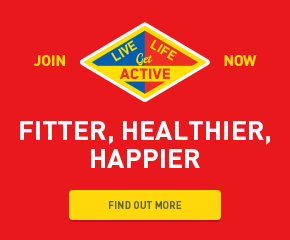Easy Ways to Avoid Unnecessary Holiday Weight Gain
Christmas is a time to enjoy yourself with friends and family and be thankful for all the good things in your life. It is not a time to try and introduce an intense diet or fasting regime.
Not only is it going to be extremely difficult but you want to be enjoying yourself! Which is why we put together 8 ways small changes avoid putting on unnecessary weight over the holidays.
These are designed to take the edge off the holiday period blowout, so try and incorporate as many as you can!
Get Plenty of Sleep, You’ve Earnt It.
We often underestimated the benefits of sleep. During the holiday period sleep deprivation is quite common, those who do not sleep enough tend to be hungrier, consume more calories, and exercise less.
Not enough sleep can also lower your metabolism, which at this time of the year is crucial to keep as high as possible. So get that rest when you can, no work means nap time, right?!
Avoid Processed Foods.
Only a small change that can be hugely beneficial when comparing the calories of two different foods. An example of this is store-bought gravy compared to home-made.
While processed foods may be quick and easy, these types of foods contain a lot more unhealthier fats, oils and salt that are not in the home-made alternative.
Which is why you should probably think twice if deciding between real light cream or whipped cream from a can for desserts.
Stay Active, Even Just a Little.
This may sound a little obvious but it’s important. Because although the Christmas period is a busy time of year, staying moving and active as much as possible can go a long way.
Even if it is just a light walk before a big meal, or a longer swim at the beach. These small efforts go a long way to keeping the body fresh and is much better than doing nothing.
Being inactive will also contribute to weight gain, especially if accompanied by overeating. While staying active is crucial this time of year, don’t use it as an excuse to gorge yourself at the next meal.
Watch Portion Sizes.
When the Christmas spread is laid out it’s very easy to overfill your plate. Try grabbing a smaller plate if possible, it will force you to take less food and not force yourself to finish everything on the plate.
However, it just comes down to using your best judgment and to fill your plate with a reasonable amount of food.
If you are hungry and need a snack, opt for real foods. Fruits, vegetables, nuts, and seeds are filling snacks that don’t contain added sugars or unhealthy fats.
Stay Hydrated.
If you’re consuming alcoholic beverages over the holidays, try alternating with glasses of water in between your cocktails. Your body will thank you for it the next morning.
Alcoholic drinks can contribute a significant amount of sugar and empty calories to your diet, which can cause weight gain.
Continually drinking water throughout the days will also keep you fuller for longer and if drinking alcohol, help towards less of a hangover the next day.
Plan Ahead, Pick your Battles.
Planning ahead is a great way of avoiding holiday weight gain. If you know that you’re having a big lunch or dinner later that day, start the day off with a smaller breakfast to lower your daily calorie intake overall.
This line of thinking can also be expanded to include the following day. For example, you may plan to have smaller meals and do some light exercise the day after Christmas or Boxing Day.
We aren’t saying don’t treat yourself, it’s about not treating yourself for breakfast, lunch and dinner!
Eat Slowly, Take your Time, Thank us Later.
We all know the feeling. You’ve been waiting hours for the Christmas spread to be laid out, being teased by the wafting aromas coming from the kitchen. You sit down and begin devouring the lunch or dinner.
Soon after your entering a food coma, your brow is sweaty and you feel awful. You have also just consumed far more calories than your body needs.
Overeating and eating too fast are like peas and carrots. They come hand in hand and therefore addressing one can often reduce the effect of the other. So when you do sit down to enjoy your meal, take it slow.
Enjoy your food, chew it properly and let it sit in your stomach for a few seconds before taking your next bite. It will allow your brain to register whether your body is full or not before it is too late.






